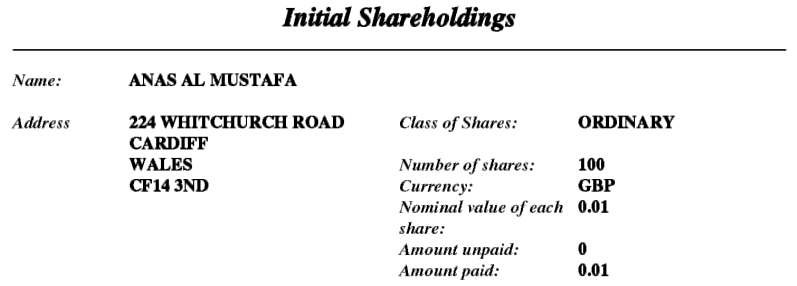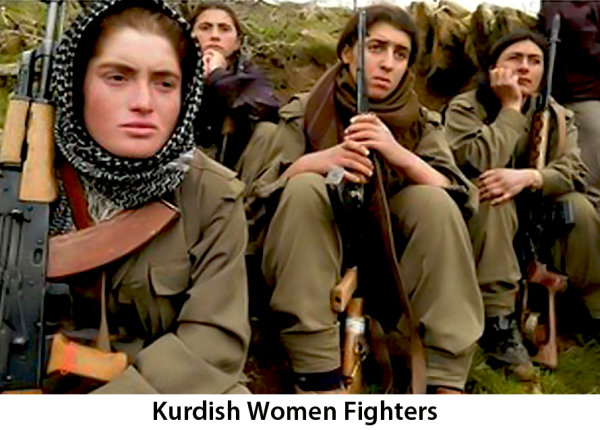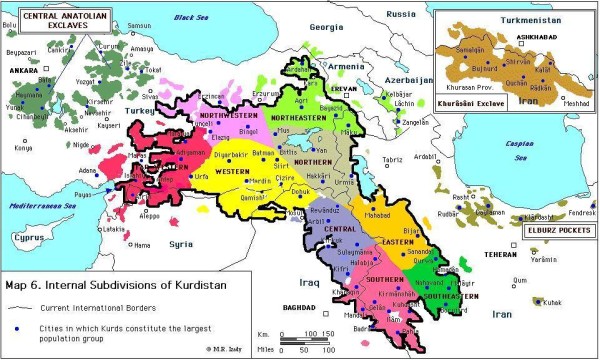![]() This piece results from news I received about a court case in Sussex. I started digging, and it got to be like peeling an onion. Perhaps not pleasant, but there you go, that’s life.
This piece results from news I received about a court case in Sussex. I started digging, and it got to be like peeling an onion. Perhaps not pleasant, but there you go, that’s life.
Obviously I won’t comment on the case itself, or the proceedings. What I’ll do is look at the fascinating connections the accused man has across southern Wales.
And wondering how to make sense of it all. Any and all suggestions welcome.
◊
WORKING BACKWARDS
The case I was directed to began at Lewes Crown Court in Sussex last Monday. A Syrian, living in Swansea, was charged with bringing people from Vietnam into the country illegally, through Newhaven.
Here’s how the incident was originally reported in February.
The man’s name is Anas al Mustafa, and in a previous report, his address was given as ‘Heather Crescent, Swansea’. This is on the Sketty Park estate, the road running from Sketty Park Drive up to the flats.
As you might guess, Swansea being my home town, I got to wondering about him.
My source had directed me to the Companies House website, and the company A & T Food Transport Ltd. Which made sense, seeing as the latest news report mentioned ‘a refrigerated van’.
There seem to be a number of addresses linked to this company, in Swansea and Cardiff; with Anas al Mustafa also taking us to Bedwas. So let’s see what it all tells us.
UPDATE: Anas al Mustafa was found guilty and will be sentenced on September 6.
UPDATE September 6: Anas al Mustafa was jailed for 10 years.
◊
A & T FOOD TRANSPORT LTD
The address given for the company is 22 Caepistyll Street, which links Carmarthen Road with Llangyfelach Street, running past St Joseph’s Cathedral primary school.
There have been three directors. The man on trial in Sussex. Who is described as British. He resigned 29.09.2023. A Swedish citizen named Mohammad Mustafa al Mustafa, who might be a kinsman. He joined the company 22.11.2023. And Ahmad Farhan Hudad, who filled in between one al Mustafa leaving and the other joining.
The property in Caepistyll Street used as the company address is owned by the Coastal Housing Group, which I believe is the biggest housing association in Swansea. Here’s the property title document.
It seems that Muhammad al Mustafa from Sweden now lives in Caepistyll St. Is he the registered tenant? What do the Coastal Housing rules say about running a business from its properties?
And come to that, how does a citizen of a wealthy country like Sweden qualify for social housing in Wales?
And although the accused’s address is given in the media as being in Sketty Park, on the Companies House entry both he and Hudad give their address as 52 Ceri Road, Townhill. Which, as the title document confirms, is owned by Swansea council.
I have the exact address for Heather Crescent, where the company was based until October 12, 2023, and where the accused is said to live, but this property is privately owned and I’m assuming there’s no connection between the owners and those who probably rented it. So we’ll leave that there.
Let’s end this section by reminding ourselves that the arrested man, Anas al Mustafa, left A & T Food Transport at the end of September last year. The company is now run by the Swedish citizen I believe to be related, Mohammad al Mustafa.
◊
THE THIRD MAN
As I’ve said, the third director of the Swansea company was Ahmad Farhan Hudad. He seems to have been holding the fort during the interregnum.
Hudad has been involved in two other companies.
One being Amana Accountant Ltd. This company also uses the Ceri Road address. Does Swansea council have rules about running businesses from council houses?
There was never much to speak of in terms of money in this company until the accounts for y/e 31.01.2024 showed £50,000 appearing as intangible assets. (Later in the accounts described as ‘goodwill’.)

The second company is Pure General Trading Ltd. The other director here is Hiwa Mohammed Salman Amin. He gives as his address the new company address on the Enterprise Park in Llansamlet. To be exact, Unit 1, Aber Court, off Ferryboat Close.
There’s no money in this company, it files as dormant.
These Llansamlet properties are owned by Swansea council and this particular unit was leased in March 1981 for 75 years. So it’s presumably rented from the lessor.
But Pure General Trading began life, in May last year, at 83 Mansel Street, just out of the city centre, a scruffy property next-door to a nail bar.

No 83 is either being rented or, if it’s been sold, then the records haven’t been updated with the Land Registry.
◊
THE CARDIFF CONNECTION
If we turn to the Certificate of Incorporation for A & T Food Transport Ltd we see the company’s address given as being in St Mellons.
While Anis al Mustafa, the founding director, gives his address as 224 Whitchurch Road.

This Whitchurch Road property is owned by Somarz Properties LLP. Here’s the title document. Somarz seems to buy up property in and around Cardiff.
Though there’s a strange pattern to the dealings. If we check the Charges, we see that nineteen were delivered from the Principality Building Society on November 5, 2019 (one on Nov 4).
Nothing then until four were delivered in July 2022 from Arbuthnot Latham and Co (two of which were satisfied the same month), then a gap of two years until two more were delivered last month from Ultimate Bridging Finance Ltd.
But I’m having trouble making sense of it. Let me explain.
If we look at the latest (filleted) accounts for Somarz Properties LLP, to March 30, 2023, we see a massive jump in the value of ‘investments’ from the previous year. An increase of some £14.5m.

Yet, to go by the charges registered with Companies House, the only acquisition in that period was 131A Cyncoed Road. (The smaller property at the front.) And nice though Cyncoed might be, there’s no way a house on someone’s drive runs to £14.5m.
One possibility is that this windfall came from Zafar Malik, who seems to have died late in 2022, and who I assume was related to the current Partners. He was not a good landlord. Or a good neighbour.
As I’ve said before, Limited Liability Partnerships can be used to hide a multitude of sins. And very often do.
◊
AND SO TO BEDWAS
I’ve spent some happy hours in Bedwas, my Best Man hailed from there. Hell of a boy, Dai. Dead now.
He once told me a truly weird story from his youth, about sharing a police cell with former politician Ron Davies. It was somewhere in eastern England, typical Valleys boys on tour sort of thing. Struggling now to remember the details. Wish I could ask him.
Anyway, the man we began this tale with, the man on trial in Sussex, was also involved with a company in Bedwas. The company is still in existence, and it’s called A & B Marble Ltd.
There were two directors to begin with, the other one being Bilal Mahmoud Abou Isha. This company was launched March 4, 2020, at Aftab Foroze Consultancies Ltd in Bristol, with share capital of £10,000 split equally between the two directors.
I couldn’t find A & B at the address given, Unit B4, Pantglas Farm Industrial Estate. But at that address we do find Royal Marble. All explained by the fact that A & B Marble trades as Royal Marble. Which throws up another query.
A & B Marble Ltd is just over 4 years old, but the Royal Marble website tells us:
With over 20 years of experience, Royal Marble offers the highest quality quartz, granite and marble stone in the region.
So what was the registered company name for Royal Marble before A & B Marble?
But then the Royal Marble Facebook page says:
With over 25 years of experience, Royal Marble has offered the highest quality Quartz, Granite & Marble stone in the region.
To confuse matters further, there’s another website, this time for ‘Royal Kitchen Designs‘, explained thus:
Royal Kitchen Designs is a family-owned business, born out of the success of its sister company, Royal Marble, also in Bedwas, Caerphilly.
There’s something not right about these websites and FB page. They smack of ‘library images’, or even AI. They lack the human touch. Also lacking names.
And again, there’s little in the way of money or assets showing in the accounts, Despite all that expensive material on site and claiming to employ 5 or 6 people.
Before getting into the fitted kitchen business Abou Isha had a catering company in Neath called Damasspice Ltd, which lasted just a couple of years. It filed just one set of accounts, as a dormant company.
When Anas al Mustafa left A & B Marble he was replaced by another Syrian, Awad Mohammad Almobarack. Then he left A & B Marble in December 2021, and has surfaced again starting up two companies over in Pontypool earlier this year.

So we have a company in Bedwas that’s been going for 20 years (or is it 25), but it’s unclear under which flag it was sailing for most of that time because A & B Marble didn’t exist before March 2020.
In fact, a cynic might wonder if A & B Marble of Bedwas was formed solely to get a loan from the Development Bank of Wales. (Didn’t I mention that!)
◊
CONCLUSION
So many short-lived companies, with virtually no money or assets showing in the accounts (apart from one), and constant changes of address and personnel, can often look suspicious.
And so many different types of business. Such a multi-talented crew merits the title I’ve given this piece.
There’s even a sort of pattern, in that two guys form a company, then go their separate ways and recruit someone else for a new company, then it’s a case of rinse and repeat.
Virtually all those involved are Syrian. Making it reasonable to assume a Syrian link to these companies. But what is that link, and how does it operate?
And then there’s the question of how those involved managed to get social housing so easily. Did they claim to be refugees? Or did they say they was local boys, like?
And how much due diligence was undertaken by that respected institution, the Development Bank of Wales, before lending to A & B Marble Ltd?
Finally, those who preach Nation of Sanctuary, and demand open borders, really need to grow up and consider the real world consequences of being so ‘progressive’.
♦ end ♦
© Royston Jones 2024








